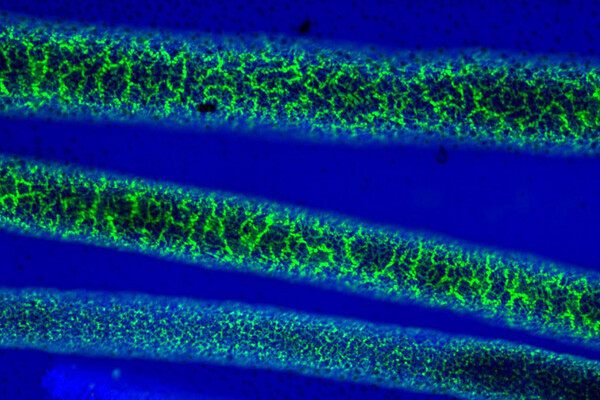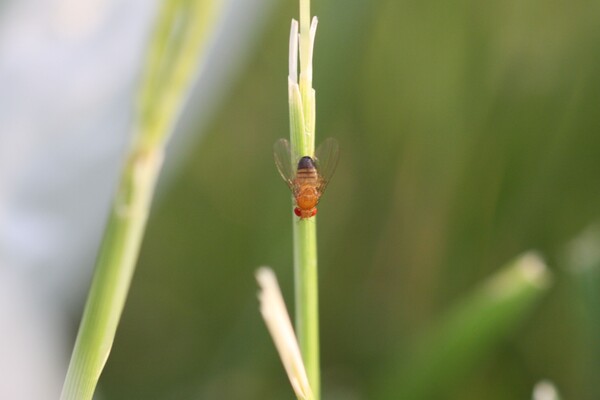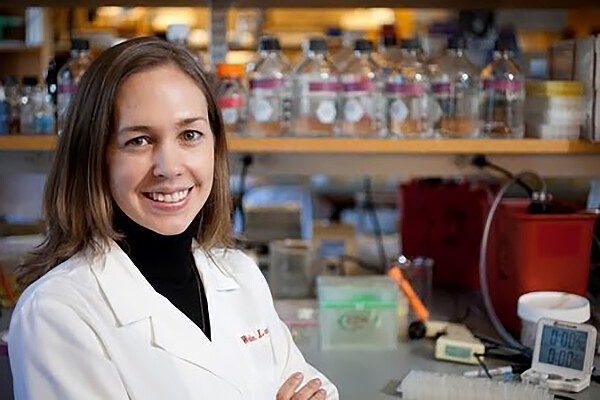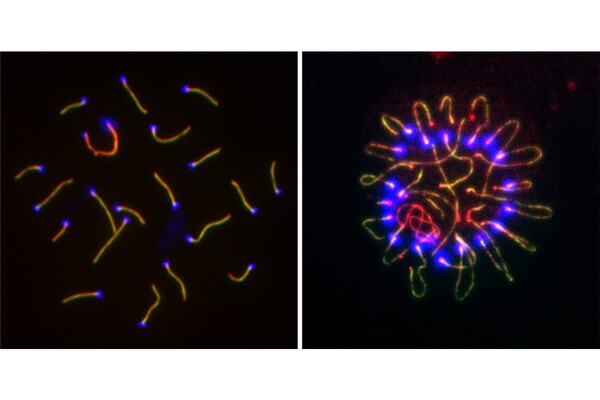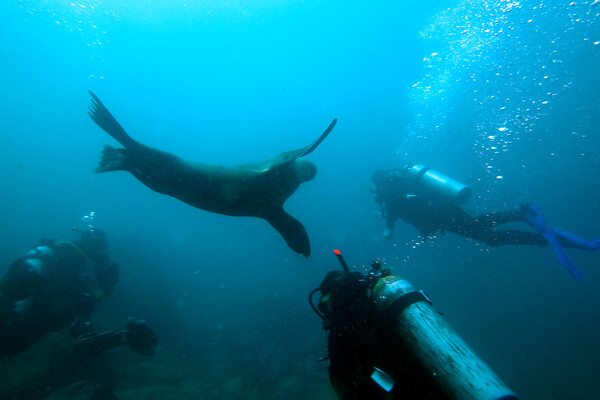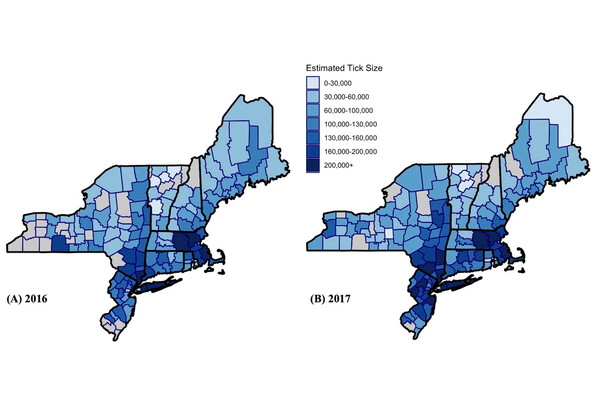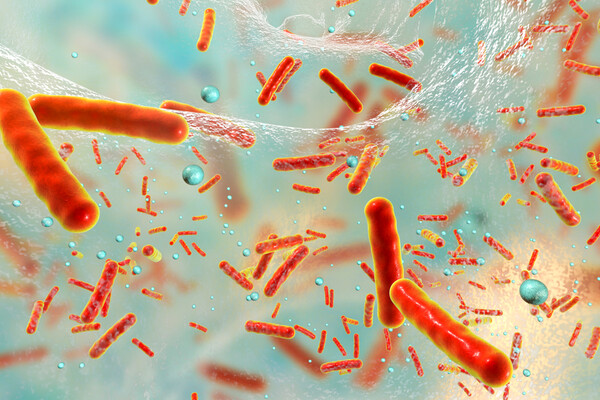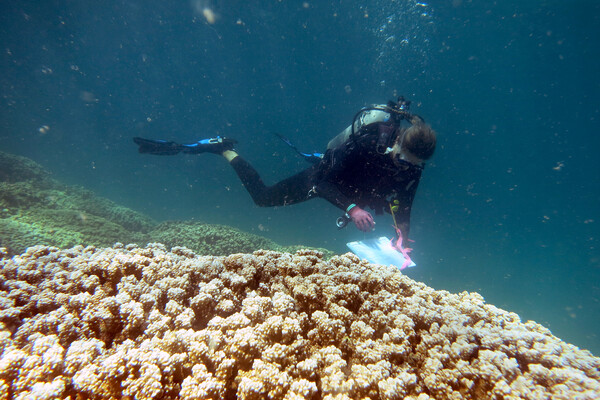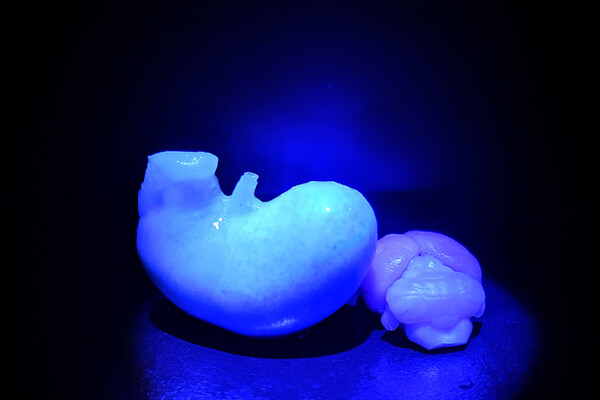5/10
Biology
From a pandemic, scientific insights poised to impact more than just COVID-19
Pivoting to study SARS-CoV-2, many scientists on campus have launched new research projects that address the challenges of the pandemic but also prepare us to confront future challenges.
Rapid adaptation in fruit flies
New findings from School of Arts & Sciences biologists show that evolution—normally considered to be a gradual process—can occur in a matter of weeks in fruit flies in response to natural environmental change.
Links between diet and cancer
Kathryn E. Wellen, an associate professor of Cancer Biology and principal investigator of the Wellen Lab, seeks answers to find the connections between metabolism and cancer biology.
Context-dependent behavior can make cooperation flourish
Recent studies led by School of Arts & Sciences’ researchers show that changing social strategies between settings—for example, cooperating at home but not at work—can in fact lead to more cooperative behavior in a society.
Revealing the mysterious biology of a fundamental process: reproduction
New findings from the lab of P. Jeremy Wang in the School of Veterinary Medicine shed light on the cell division process that creates eggs and sperm, recurrent pregnancy loss, and the mechanism by which sperm move.
On the Galápagos, an underwater exploration of marine life
In collaboration with a local dive instructor and the students he trained, researchers from Penn and Villanova are learning how human presence affects life on the seafloor around these islands.
A better estimate for tick numbers with ‘citizen science’ data
A team led by School of Arts & Sciences biologists found a way to account for biases in data collected by members of the public, using it to create a comprehensive abundance map of the tick responsible for transmitting Lyme disease.
Common gene variants linked to sepsis and COVID-19 severity in African Americans
Two genetic risk variants that are carried by nearly 40% of Black individuals may exacerbate the severity of both sepsis and COVID-19. A Penn Medicine study identifies two potential pathways to reduce the health disparities driven by these gene mutations.
From corals to humans, a shared trigger for sperm to get in motion
Coral sperm require a specific pH to move, according to research from the School of Arts & Sciences, which identifies a signaling pathway that is shared by organisms including humans. The results inform how corals may fare with climate change.
In the brain’s cerebellum, a new target for suppressing hunger
A research team led by J. Nicholas Betley in the School of Arts & Sciences has identified an entirely new way the brain signals fullness after eating. The findings offer a novel target for therapies that could dramatically curb overeating.
In the News
Man does DNA test, not prepared for what comes back ‘unusually high’
César de la Fuente of the School of Engineering and Applied Science and Perelman School of Medicine says that Neanderthal DNA provides insights into human evolution, population dynamics, and genetic adaptations, including correlations with traits such as immunity and susceptibility to diseases.
FULL STORY →
Bird flu virus has been spreading in U.S. cows for months, RNA reveals
Louise Moncla of the Veterinary School of Medicine says that the bird flu virus is clearly being transmitted to cows in some way.
FULL STORY →
When is the best time to take L-theanine—morning or night?
According to Colleen Tewksbury of the School of Nursing, research suggests that L-theanine may help support stress management, sleep, and potentially weight management.
FULL STORY →
Is the flu shot market a slam dunk for mRNA vaccines? Experts aren’t so sure
Scott Hensley of the Perelman School of Medicine is working on a flu vaccine to provide protection against 20 subtypes of flu that may pose a pandemic threat in the future.
FULL STORY →
Thanks, Neanderthals: How our ancient relatives could help find new antibiotics
A study by César de la Fuente of the Perelman School of Medicine and colleagues used AI to recreate molecules from ancient humans that could be potential candidates for antimicrobial treatments.
FULL STORY →
Long COVID brain fog may originate in a surprising place, say scientists
A study by Christoph Thaiss and Maayan Levy of the Perelman School of Medicine and colleagues finds that long COVID’s neurological symptoms, like brain fog, memory loss, and fatigue, may stem from serotonin reduction.
FULL STORY →



